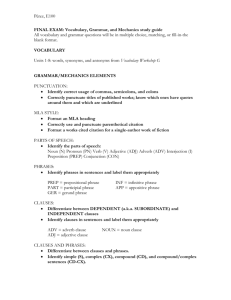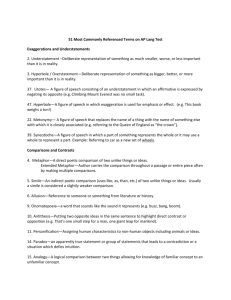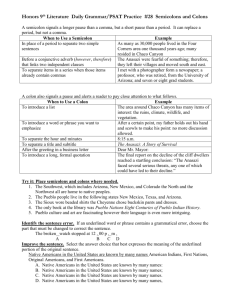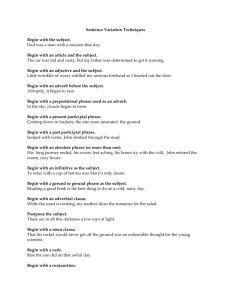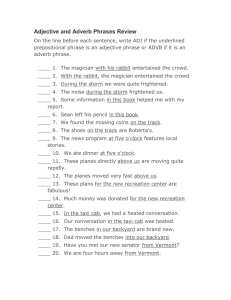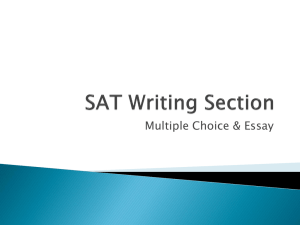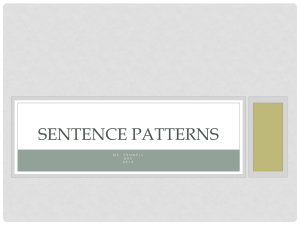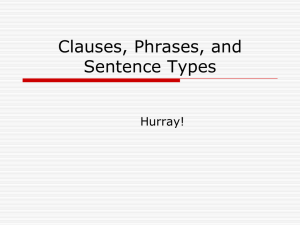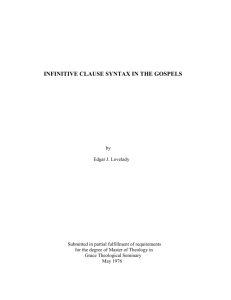JUNIOR & SENIOR DIVISIONS
advertisement
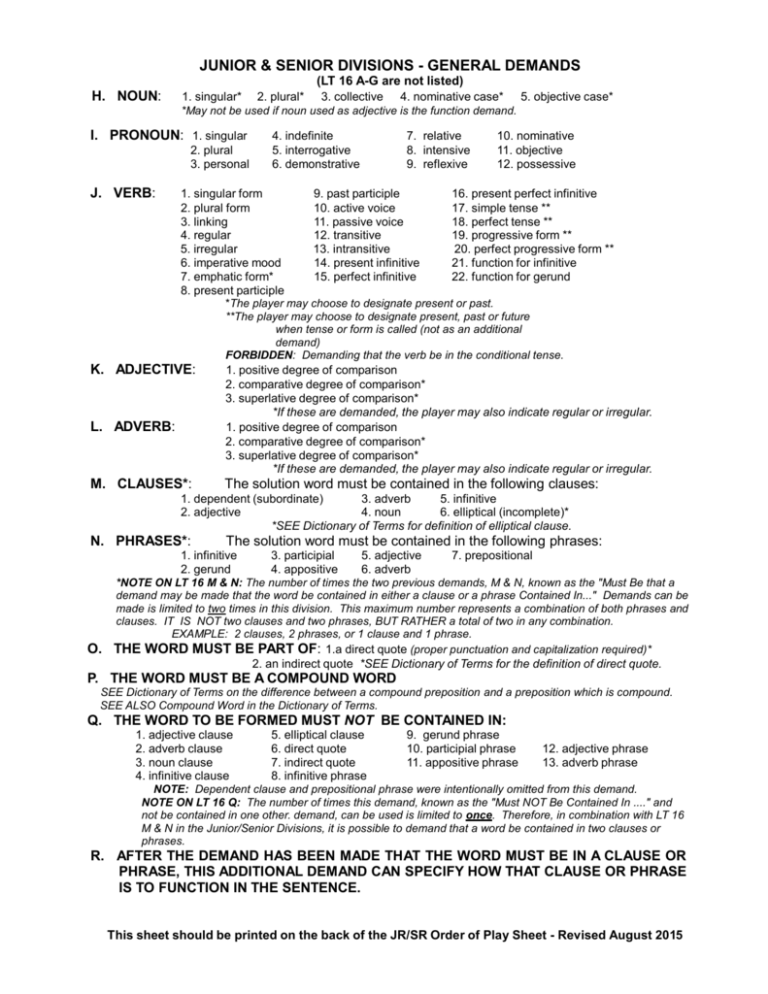
JUNIOR & SENIOR DIVISIONS - GENERAL DEMANDS H. NOUN: 1. singular* 2. plural* (LT 16 A-G are not listed) 3. collective 4. nominative case* 5. objective case* *May not be used if noun used as adjective is the function demand. I. PRONOUN: 1. singular 2. plural 3. personal J. VERB: 4. indefinite 5. interrogative 6. demonstrative 1. singular form 2. plural form 3. linking 4. regular 5. irregular 6. imperative mood 7. emphatic form* 8. present participle 7. relative 8. intensive 9. reflexive 9. past participle 10. active voice 11. passive voice 12. transitive 13. intransitive 14. present infinitive 15. perfect infinitive 10. nominative 11. objective 12. possessive 16. present perfect infinitive 17. simple tense ** 18. perfect tense ** 19. progressive form ** 20. perfect progressive form ** 21. function for infinitive 22. function for gerund *The player may choose to designate present or past. **The player may choose to designate present, past or future when tense or form is called (not as an additional demand) FORBIDDEN: Demanding that the verb be in the conditional tense. K. ADJECTIVE: L. ADVERB: M. CLAUSES*: 1. positive degree of comparison 2. comparative degree of comparison* 3. superlative degree of comparison* *If these are demanded, the player may also indicate regular or irregular. 1. positive degree of comparison 2. comparative degree of comparison* 3. superlative degree of comparison* *If these are demanded, the player may also indicate regular or irregular. The solution word must be contained in the following clauses: 1. dependent (subordinate) 3. adverb 5. infinitive 2. adjective 4. noun 6. elliptical (incomplete)* *SEE Dictionary of Terms for definition of elliptical clause. N. PHRASES*: The solution word must be contained in the following phrases: 1. infinitive 2. gerund O. 3. participial 4. appositive 5. adjective 6. adverb 7. prepositional *NOTE ON LT 16 M & N: The number of times the two previous demands, M & N, known as the "Must Be that a demand may be made that the word be contained in either a clause or a phrase Contained In..." Demands can be made is limited to two times in this division. This maximum number represents a combination of both phrases and clauses. IT IS NOT two clauses and two phrases, BUT RATHER a total of two in any combination. EXAMPLE: 2 clauses, 2 phrases, or 1 clause and 1 phrase. THE WORD MUST BE PART OF: 1.a direct quote (proper punctuation and capitalization required)* 2. an indirect quote *SEE Dictionary of Terms for the definition of direct quote. P. THE WORD MUST BE A COMPOUND WORD SEE Dictionary of Terms on the difference between a compound preposition and a preposition which is compound. SEE ALSO Compound Word in the Dictionary of Terms. Q. THE WORD TO BE FORMED MUST NOT BE CONTAINED IN: 1. adjective clause 2. adverb clause 3. noun clause 4. infinitive clause 5. elliptical clause 6. direct quote 7. indirect quote 8. infinitive phrase 9. gerund phrase 10. participial phrase 11. appositive phrase 12. adjective phrase 13. adverb phrase NOTE: Dependent clause and prepositional phrase were intentionally omitted from this demand. NOTE ON LT 16 Q: The number of times this demand, known as the "Must NOT Be Contained In ...." and not be contained in one other. demand, can be used is limited to once. Therefore, in combination with LT 16 M & N in the Junior/Senior Divisions, it is possible to demand that a word be contained in two clauses or phrases. R. AFTER THE DEMAND HAS BEEN MADE THAT THE WORD MUST BE IN A CLAUSE OR PHRASE, THIS ADDITIONAL DEMAND CAN SPECIFY HOW THAT CLAUSE OR PHRASE IS TO FUNCTION IN THE SENTENCE. This sheet should be printed on the back of the JR/SR Order of Play Sheet - Revised August 2015
